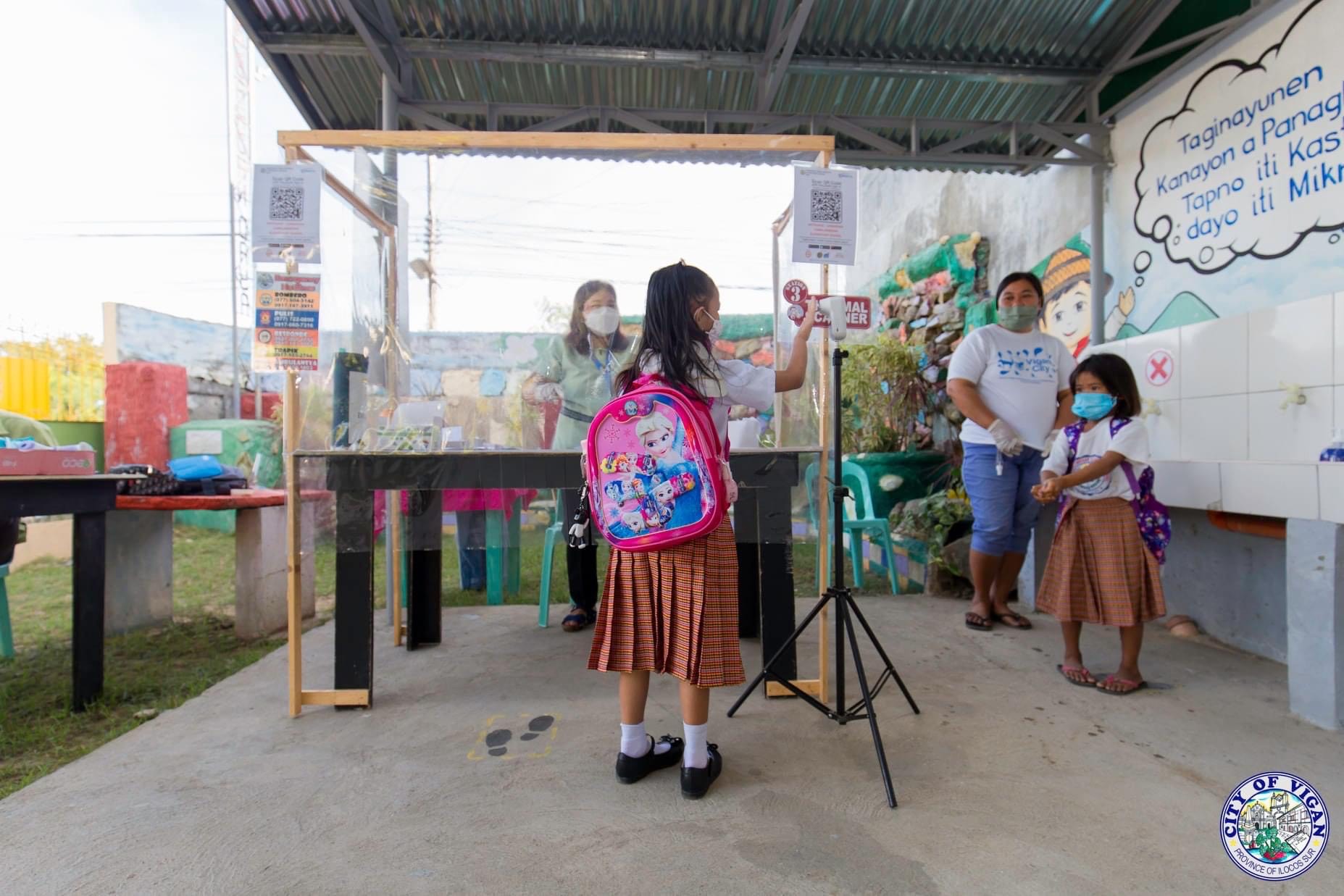
A pupil of an elementary school in Vigan City, Ilocos Sur has her temperature checked at a medical triage during the expanded in-person classes on Monday, February 21, 2022. (Photo courtesy of Vigan City government)
MANILA, Philippines — More schools are being considered to conduct limited in-person classes, as more areas have been put in the lowest alert levels amid the decreasing number of COVID-19 cases in the country.
Some 14,350 public and private schools with over 2 million learners have been nominated for the progressive expansion of limited in-person classes as of March 17, the Department of Education (DepEd) said on Friday.
Of these, 13,818 were public schools, while 406 were privately run. The remaining were unknown as their school identification numbers were yet to be determined.
This was a 74-percent increase from the 8,244 nominated schools—or those which already passed the DepEd’s assessment, but have yet to gain approval from their respective local governments and parents associations to conduct physical classes—announced in a briefing last week.
Once approved, more than 14,000 schools will be added to the more than 9,000 schools that are currently conducting their limited in-person classes.
In a press briefing, Education Assistant Secretary Malcolm Garma said that as of March 17, there were 9,353 schools that were participating in the expanded phase of in-person classes—or just 15.4 percent of all the 60,744 schools participating in the current school year.
Relax requirements
Of these, 8,972 are public schools and 381 are private institutions, with a total of more than 2.56 million learners across the country.
Education Secretary Leonor Briones said the DepEd was in discussion with the Department of Health if requirements for schools to conduct in-person classes could be relaxed.
Currently, schools can only conduct in-person classes if they are under alert level 1 or 2 and had obtained the concurrence of their respective local governments, written consent from the parents of the participants, and coordinated with the barangays for the implementation.
Students participating in physical classes were “preferred” to be vaccinated. Teachers conducting these classes are required to be fully inoculated.
The National Capital Region and 47 other areas have been placed under alert level 1 until the end of March. The rest of the country remains under alert level 2.
RELATED STORIES
College classes back to full capacity in ‘level 1’ areas
DTI chief backs nationwide Alert Level 1, expansion of in-person classes

